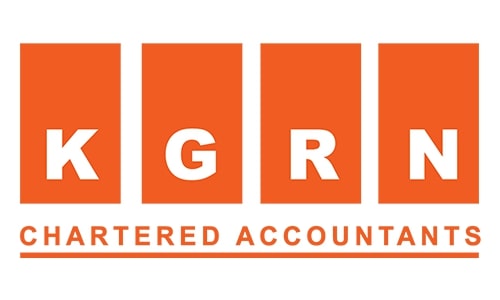On 6th February 2025, the UAE Ministry of Finance (MoF) published a public consultation paper on eInvoicing which includes the proposed UAE e-Invoicing data dictionary. This public consultation aims to gather feedback from all stakeholders on eInvoicing, promote transparency and ensure the new framework meets needs of the industry.
The paper also provides the blueprint of the UAE’s eInvoicing framework, that outlines the UAE’s adoption of DCTCE (Decentralized Continuous Transaction Control and Exchange) model a catalog of data elements that are standardized and used to generate, exchange, process, and report e-invoices.
Overview of The UAE’s e-Invoicing System
The UAE Ministry Of Finance released several updates to the centralized framework of the eInvoicing system. However, the release of the public consultation document marks a major milestone in the implementation of eInvoicing framework.
The UAE eInvoicing framework implements Peppol-based 5-Corner Model and real-time Continuous Transaction Control (CTC), in order to enhance tax compliance, ensure transparency and efficiency.
The Purpose of the Adoption of eInvoicing Framework For Businesses
The launch of eInvoicing framework in UAE showcases its commitment to align with global standards and trends in digital taxation. The implementation is required only for business-to-business (B2B) and business-to-government (B2G) transactions excluding business-to-customer (B2C) transactions. The exclusion of B2C transactions in the initial stage of implementation, indicates a focused implementation. The eInvoicing requirement will be applicable for all businesses in the UAE, irrespective of the VAT registration status.
This eInvoicing system provides the opportunity to deliver a number of significant domestic imperatives in alignment with the “We the UAE 203” vision, such as:
As the UAE government is heading towards the 2026 implementation deadline of UAE eInvoicing framework, businesses should be prepared for the transition of traditional invoicing process to complete digitalization of invoice processing. This will create a paradigm shift in the way businesses handle invoices and tax reporting.
Significant Dates For The Implementation of eInvoicing System in UAE
27 February 2025: The deadline to submit feedback on the consultation paper, to verify that all necessary fields for your business transactions are covered in the data dictionary and to request for clarification on the definitions of the data elements.
End of February: The MoF will be releasing the accreditation procedures for Accredited Service Providers (ASPs).
July 2026: The eInvoicing systems will be operationalized by businesses and government organizations for the B2B and B2G Invoicing process.
Primary Objectives of The Public Consultation:
- Establish a common basis across business communities regarding the data elements used in eInvoices
- To understand the perspective and practical requirements of businesses, while simultaneously identifying any gaps or additional data to be included for operational, analytical or regulatory purposes.
- Obtain diverse viewpoints of accounting firms, eInvoicing Service Providers, and industry experts to create a holistic and widely accepted electronic invoicing framework.
The Core Elements of the Public Consultation Document
The public consultation covers the following core elements for the implementation of eInvoicing in UAE:
UAE eInvoicing Framework BluePrint: Details the adoption of the Decentralised Continuous Transaction Control and Exchange (DCTCE) model – an advanced system that utilizes decentralized technology to improve security and efficiency.
The eInvoicing Data Dictionary (PINT AE): outlines the data elements (fields), attributes and use cases of 16 commonly used invoices, including zero-rated supplies, standard tax invoices, and reverse charge mechanism. Each data field adheres to the UAE specific standards as well as the global specifications.
Stakeholder Feedback on Critical Aspects of eInvoicing: The consultation seeks targeted feedback on the key areas in order to refine the data dictionary document.
Detailed Description of Invoice Attributes: Outlines comprehensive mandatory fields some of which are not covered under VAT Law and 15 common use cases of invoicing.
Overview of The Data Dictionary
The data dictionary is the vital element of the entire eInvoicing system. It is a structured and standardized catalog of all data elements that is used to generate, process, exchange and report invoices ( including self-billing, tax invoice, tax credit invoice and other invoicing scenarios) digitally.
Typical Use Cases on Operating With the Data Dictionary
The following are the most common use cases of 16 different invoicing scenarios, each with specific compliance requirements. Each scenario contains unique data fields and validation measures, which is helpful for businesses to process invoices and avoid rejection.
Businesses should take note of the following scenarios to verify that their invoicing practices align with the relevant scenarios.
| Use case | Description | Details |
| 1 | UAE Standard tax invoice | Mandatory and commonly used optional fields |
| 2 | Supply under Reverse charge mechanism | Additional requirements beyond use case 1 |
| 3 | Zero rated supplies | Additional requirements beyond use case 1 |
| 4 | Deemed supply | Additional requirements beyond use case 1 |
| 5 | Disclosed agent billing | Additional requirements beyond use case 1 |
| 6 | Summary tax invoice | Additional requirements beyond use case 1 |
| 7 | Continuous supplies | Additional requirements beyond use case 1 |
| 8 | Supply involving free trade zone | Additional requirements beyond use case 1 |
| 9 | Supply through e-commerce | Additional requirements beyond use case 1 |
| 10 | Exports | Additional requirements beyond use case 1 |
| 11 | Margin scheme | Additional requirements beyond use case 1 |
| 12 | Standard tax credit note | Mandatory and commonly used optional fields |
| 13 | Disclosed agent billing tax credit note | Additional requirements beyond use case 12 |
| 14 | Commercial Invoice | Mandatory and commonly used optional fields |
| 15 | Self-billing | Mandatory and commonly used optional fields |
| 16 | Self-billing tax credit note | Mandatory and commonly used optional fields |
Impact on Businesses
This public consultation document emphasises significant areas of consideration for businesses:
- EInvoicing requirements will be applicable for all businesses operating in the UAE, irrespective of their VAT registration status and also for all the taxable persons.
- Businesses must obtain a TIN, the first 10 digits of a TRN, and for businesses that don’t have a TRN, should register with FTA and obtain a TIN.
- Upon Implementation of the eInvoicing framework, HSN codes will be optional and mandatory, which will be challenging for businesses that do not maintain globally recognized HSN codes.
- The implementation will be in a phased manner, so henceforth taxable and non-taxable entities will be required to adopt eInvoicing framework.







